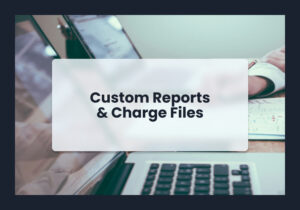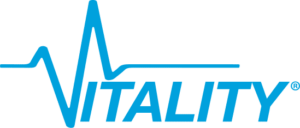We’ve all been there. You open up your utility bill and your first instinct is to just pay the bill and move on, but what if there was a way to avoid those high bills in the first place? Introducing utility bill tracking.
Utility bill tracking is a great way to keep tabs on your energy usage and make sure that you’re not overspending. By understanding where your money is going, you can make changes to reduce your costs.
Table of Contents
Understanding Your Utility Bills
If you’re like most people, you probably don’t think much about your utility bills. You just pay them without really knowing what they mean.
But if you take a closer look, your utility bills can actually tell you a lot about your consumption habits and how to save money.
Here’s a quick guide to understanding your utility data.
1. Your Electric Bill Is Divided Into Two Parts
Your utility data has a fixed charge and a variable charge. The fixed charge is a set amount that you pay every month, regardless of how much electricity you use. This charge covers the cost of maintaining the power lines and other infrastructure.
The variable charge is the amount you pay for the actual electricity you use. This charge is based on your consumption and will go up or down depending on how much electricity you use.
2. Your Gas Bill Is Also Divided Into Two Parts
Like your electricity bill, your gas bill has a fixed charge and a variable charge. The fixed charge is a set amount that you pay every month, regardless of how much gas you use. This charge covers the cost of maintaining the gas lines and other infrastructure.
The variable charge is the amount you pay for the actual gas you use. This charge is based on your consumption and will go up or down depending on how much gas you use.
3. Your Water Bill Is Also Divided Into Two Parts
Like your energy bills, your water bill has a fixed charge and a variable charge. The fixed charge is a set amount that you pay every month, regardless of how much water you use. This charge covers the cost of maintaining the water lines and other infrastructure.
The variable charge is the amount you pay for the actual water you use. This charge is based on your consumption and will go up or down depending on how much water you use.
4. Your Waste Management Bill Is Also Divided Into Two Parts
Utility data on your waste management bill has two types of charges: fixed and variable. The fixed charge is a set amount that you pay every month, regardless of how much trash you generate. This charge covers the cost of paying the trash collectors and maintaining waste management infrastructure.
The variable charge is the amount you pay for actual trash collection. This charge will go up or down depending on how much trash you generate.
To save money on your utility bills, you can try to cut back on your utility usage.
There are a number of ways to do this, such as using energy-efficient appliances, sealing up drafts in your home, and turning off lights when you’re not using them. You can also try to reduce your utility usage by using utility bill tracking tools.
These tools can help you see where you’re using the most energy and water so you can make changes to save money.
Tips for Tracking and Managing Utility Costs
1. Know What You’re Paying For
Make sure you understand all the components of your utility bill so you can identify any potential areas of waste.
2. Track Your Usage
Keep tabs on how much electricity, water, and gas you’re using each month.
This will help you identify any spikes in usage and potential areas for utility savings.
3. Compare Rates
Take some time to compare utility rates in your area. You may be able to find a better deal by switching providers.
4. Implement Energy-Saving Measures
There are several simple things you can do to save on your utility costs. These include things like weatherizing your home, using energy-efficient light bulbs, and unplugging electronics when they’re not in use.
5. Stay On Top Of Bill Payments
Paying your bills on time can help you avoid late fees and other penalties. You can also set up automatic payments to make sure your bills are paid on time, every time.
By following these tips, you can save money on your utility costs and keep better track of your usage.
(Source)
Analyzing Your Energy Usage to Reduce Expenses
If you’re trying to save money on your utility bills, it’s time to start paying attention!
One way to reduce your energy expenses is to track your energy usage over time. This will help you to identify patterns and find ways to cut back.
There are a few different ways you can track your energy usage.
One option is to use a smart meter. This type of meter tracks your usage in real-time and can be accessed online.
Another option is to use a utility bill tracking service. This type of service will keep track of your usage and provide you with reports. This can be a great way to identify patterns and see where you can save money.
No matter which method you choose, tracking your energy usage is a great first step to reducing your expenses and carbon footprint. Once you have a better idea of your patterns, you can start making changes to save money.
Benefits of Automated Utility Bill Management Systems
As a busy professional, you’re always looking for ways to streamline your life and make things run more smoothly. One area that can be a real pain point is keeping track of your utility bills.
Whether you’re managing a household or a business, utility bill tracking can be time-consuming and difficult. An automated utility bill management system can take a lot of the guesswork and hassle out of tracking your bills.
Here are some of the benefits of an energy management system.
1. You’ll Always Know When Your Bills Are Due
With an automated system, you can set up reminders so you’ll never miss a bill due date again. This can save you money on late fees and help you avoid service disruptions.
2. You Can Track Your Spending
Keeping track of your spending is important for both households and businesses. An automated system can help you see where your money is going each month and make adjustments as needed.
3. You Can Budget More Effectively
If you have a good handle on your monthly expenses, you can better plan for future expenses and stay within your budget.
4. You Can Make Payments Online
Many automated systems allow you to pay your bills online, which can save you time and hassle.
5. You Can Avoid Paper Clutter
If you’re tired of dealing with paper bills, an automated system can help you go paperless. This can declutter your home or office and help you be more environmentally friendly.
If you’re looking for a way to simplify your life, an automated utility bill management system is definitely worth considering. It can save you time, money, and frustration.
FAQs in Relation to Utility Bill Tracking
How can I track all my bills?
There are a few ways to track your utility bills. You can set up a budget and track your spending that way, or you can use a bill-tracking app or website.
How can I predict my utility bills?
- Check your energy usage regularly.
- Estimate your energy needs based on past usage.
- Speak with your utility company about average bills in your area.
- Purchase an online tool that can help you estimate your future utility bills.
Conclusion
Utility bill tracking is a great way to keep tabs on your energy usage and make sure that you’re not overspending. By understanding where your money is going, you can make changes to reduce your costs.
Keep an eye on your utility bills and take control of your expenses today!





